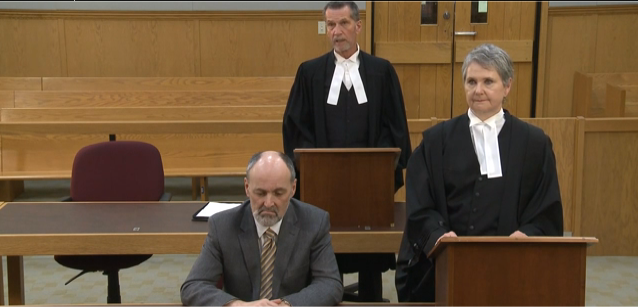Legal ethics have gone under the lights – camera lights. The Canadian Association of Legal Ethics has created a series of seven videos that will make it easier for law school faculty, bar admissions and continuing professional development programs to explore contemporary legal ethics issues.

Seven issues are examined in videos that last anywhere from three to 20 minutes. They depict a variety of scenarios and ethical dilemmas commonly encountered by lawyers, highlighting the lawyer’s duties of confidentiality, competence, and civility, and the duty to avoid conflicts of interest. One scenario, for example, starts with two lawyers at a social gathering when a client issue comes up.
Three of the videos discuss the lawyer’s role in enhancing access to justice. One of these includes a debate on mandatory pro bono. An academic argues in favour, a practising lawyer against.
“We didn’t want to reinforce stereotypes,” says Richard Devlin, a professor at the Schulich School of Law in Halifax and one of the four people who created and developed the video series.
The other people involved in the project are Brent Cotter, a law professor at the University of Saskatchewan; Schulich law professor Jocelyn Downie; and Colin Jackson, a PhD law student at Dalhousie.
The series builds on videos developed earlier by Cotter. It was time to update the wardrobes and the context in which legal ethics are debated and encountered today.
“This is a whole new generation,” says Devlin.
The new series, which took 18 months to complete, also comes with teaching guides, which academics and others will find useful to prompt and direct discussion. Ethics is difficult to teach. Indeed, that was one of the key reasons CALE was found eight years ago.
“The students have to know some law and also some of bigger picture of the law profession,” says Devlin.
The videos, funded with support from the Chief Justice of Ontario’s Advisory Committee on Professionalism, Dalhousie’s Centre for Teaching and Learning, and the Schulich School of Law, are hosted on the “Teaching Resources” portal of the
Canadian Association of Legal Ethics website. They are available for use by legal educators, law societies. and other non-profit groups free of charge. You will need a password though, and you can get that from
[email protected].Now all you need is some popcorn.

 Seven issues are examined in videos that last anywhere from three to 20 minutes. They depict a variety of scenarios and ethical dilemmas commonly encountered by lawyers, highlighting the lawyer’s duties of confidentiality, competence, and civility, and the duty to avoid conflicts of interest. One scenario, for example, starts with two lawyers at a social gathering when a client issue comes up.
Seven issues are examined in videos that last anywhere from three to 20 minutes. They depict a variety of scenarios and ethical dilemmas commonly encountered by lawyers, highlighting the lawyer’s duties of confidentiality, competence, and civility, and the duty to avoid conflicts of interest. One scenario, for example, starts with two lawyers at a social gathering when a client issue comes up.